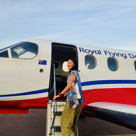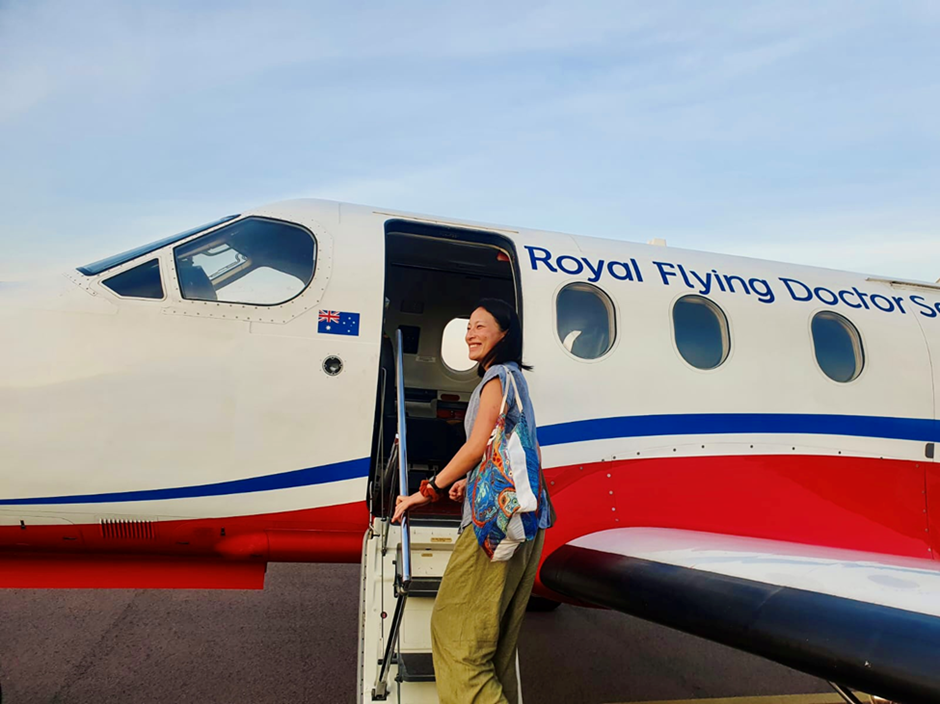
Member profile: Dr Helena Niu
22 Apr 2024
Profile
Meet Dr Helena Niu, Psychiatry Registrar at Cairns and Hinterland HHS, and member of the RANZCP Racism Awareness Steering Group. She is writing from Yidinji and Yirrganydji Country.
1) Tell us a little about yourself and your professional journey.
I’ve always been fascinated by people, language, and culture. I think it comes from having grown up between worlds – I was born in China and spent my formative years in Canada and the United States before migrating to Australia. My upbringing meant that I was exposed to different cultures, and my parents taught me the importance of being resilient and embracing change, as well as finding community wherever we moved.
I’ve been really privileged to work as a registrar for remote First Nations Communities in East Arnhem Land, Cape York and the Torres Strait, through the STP program. My current term is in community-based psychiatric rehabilitation in Cairns, run in a partnership model with an NGO.
2) What motivated you to choose a rural setting for your psychiatry training?
I first fell in love with rural medicine during medical school in country Victoria. Prior to psychiatry, I worked as a junior doctor in central Australia, far north Queensland and rural Tasmania, which were beautiful and formative experiences.
My passion lies in the intersection between advocacy, health equity and cultural safety. It’s really rewarding to apply a biopsychosocial-spiritual model of care, and then think about it in a broader public health framework. In rural settings, we meet people where they live and work, which provides fascinating context to their lives.
3) What motivated you to seek a position on the College RANZCP Racism Awareness Steering Group?
A lot of work still needs to be done to address the systemic racism and structural violence that affects First Nations People and People of Colour, including within mental health.
Mental health systems are buckling under pressure, and isolation and loneliness are widespread. Racism definitely isolates. We know that these factors perpetuate and exacerbate mental illness. There is much more to wellbeing than the absence of illness, and I think we can learn to strengthen our communities through the generosity of First Nations cultures and other collective cultures.
This quote from Kim Mulholland (Cultural Wellbeing Practitioner) has stuck with me, since we connected while working in youth leadership in the Northern Territory:
“The Aboriginal perspective of Spirituality, emphasised through the Social and Emotional Wellbeing model, is an invitation for all of us to connect, through our bodies, to Country, Culture, Our Deep Self, Our Family and Communities”.
There’s a lot to gain for everyone if we can have a more respectful dialogue, where we examine our current practices, and where cultural safety is the norm.
4) Are there aspects of training in a rural setting that have struck you as better than a metropolitan setting?
It’s an incredible feeling looking out of a tiny plane to a beautiful Country as you touch down in Community. Arriving there, we meet the local mental health team in a 4WD and get an update on what has been happening, before dropping by for a home visit to start our clinic. The adventures that come with rural and remote work are unparalleled.
There are many lifestyle perks to rural training, including being close to nature and the relaxed pace of living in a smaller place. It’s a much more immersive and creative job than being a trainee in a major city hospital. I’ve been encouraged to get involved in medical education, research and advocacy, and feel valued by the psychiatry department in Cairns.
5) What advice do you have for anyone considering psychiatry training in a rural or remote setting?
Training in a rural or remote setting is an incredibly rewarding experience, which comes with unique challenges. The lack of peers in psychiatry from diverse cultural backgrounds can be isolating, especially when living away from family. Seek out support and mentorship early, and lean on your extended support networks. I’m happy to chat to anyone who is considering this!
My biggest takeaway is to consider your role in working with the community. Keep their needs at the forefront of your practice and decision-making. Be compassionate and willing to adapt your expectations, while also being mindful of your presence and the power imbalance we hold as doctors. Make sure you learn about where you are working, and use the wealth of knowledge from Elders and health workers.
6) What do you like to do outside of work?
I enjoy reading, dancing, and exploring the beautiful Wet Tropics. A fair amount of my energy is devoted to Cookbook Club, where friends old and new come together to celebrate culture. Food is a way to create a home when you are away, and it doesn’t have a language barrier. It’s a universal language of generosity and reciprocity.
I’d love to find a way to integrate Cookbook Club with mental health - stay tuned!

More news & views
 19 February 2026
19 February 2026
Dr Sasha Jones is a psychiatry registrar based in the Northern Territory who believes some of the mo...
The shift in the public discourse is clear: ADHD is now a mainstream health policy issue, and the me...
We’re proud to acknowledge the incredible achievements of RANZCP Fellows who have been recognised in...